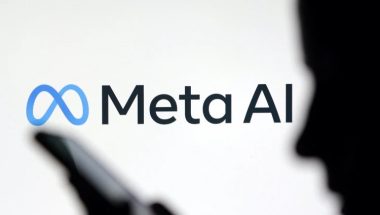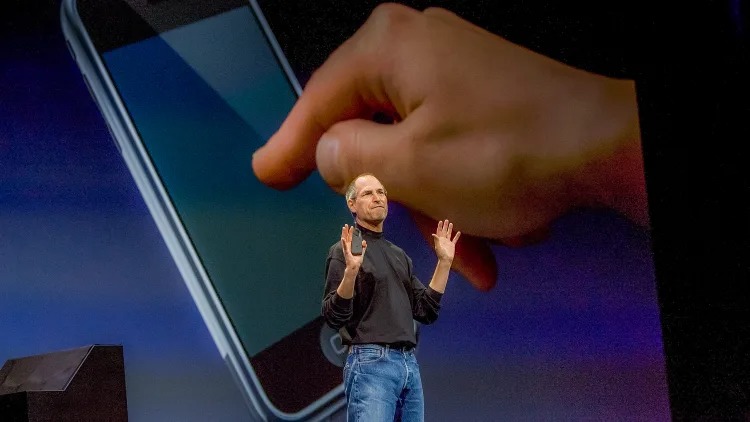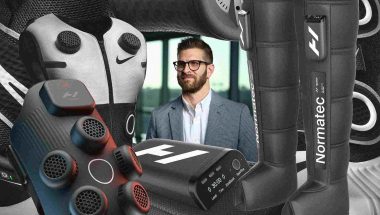- | 9:00 am
Gen Z entrepreneurs tell us how to avoid red flags in a company culture
For companies looking to attract and retain young talent, Gen Z-led companies provide insights into how to inspire, motivate, and reward Gen Z employees effectively.

Age is a rite of passage in the workforce. You gain experience and rise through the ranks. But for many, like Bader Al Ghaith, treading off the beaten track meant venturing into the unknown without prior experience. Undaunted, since his days at the American University of Dubai he was keen to create a brand that celebrated Emirati roots and captured Dubai’s vibrant energy, leading to the birth of the athleisure company.
Gen Z expects a high degree of independence. They want flexibility in where, when and how they work, whether it’s for themselves or as part of an organization. Fittingly, Al Ghaith runs his bootstrapped startup with original thoughts and ideas. “There’s just so much meaning in in-person interaction. If you can’t see your team and work as a family, something is wrong. Usually, we operate from the office, in a traditional setting, but that being said, I give people the flexibility to work from home every week.”
Gen Z is set to surpass millennials as the largest generation, comprising over a third of the global population. Their entry into the workforce is predicted to bring profound change.
While many assume that Gen Z would be a risk-averse generation, prioritizing job security over entrepreneurship, a more nuanced picture emerges as we delve deeper into their career aspirations, working styles, core values, behavior, education, and views.
“Something that we mention to all new people when they join the interview process is we don’t care when you work or how you work,” says Craig Fernandes, CEO at Securemyscholarship. This Dubai-based ed-tech platform connects students with scholarships at over 400 universities in the UAE, US, Canada, and the UK.
“I don’t believe in a multi-tasking culture. It’s something that reduces focus and concentration. Creativity comes when you’re doing a grocery run or a workout. So if creativity works in that way, I can’t keep a time constraint on it,” says Shylaish Velayutham, a Dubai-based entrepreneur who has worked at three startups while pursuing his engineering degree. Currently, he is building a personalized travel app.
EYES ON THE NORTH STAR
The Ford company was the first to lay the groundwork for modern-day 9 to 5 work cultures which is not without its criticism. So how do Gen-Z-led companies view work timings? “I have colleagues starting at more traditional times and some working later in the day. It depends on the individual. There are no two people with the same working hours. It’s an extreme form of delegation. Our policy has been to bring on board smart people, talented people, give them a North Star to aim for and get out of their way,” Fernandes says.
There’s no point restricting people. “The most popular tech companies give people comfortable workspaces, but they still have a set timing to accommodate employees worldwide. That works for them, it may not work for my team,” says Velayutham.
Regarding flexibility, Fernandes says his focus is on driving impact for good, allowing employees to decide whether they prefer a four, five, or six-day workweek based on their hours. The emphasis is on being result-oriented rather than hyper-fixated on inputs. “All that matters is the output,” he says.
He believes hiring like-minded individuals is crucial to maintain a culture of trust and flexibility. The team comprises young professionals, with an average age of 26 to 27, ranging from 20 to around 35 years old.
As a founder, Velayutham says building a company is a rewarding process. “I enjoy watching things fail,” he says.
“Gen Z struggles with depression. We’ve lived through a lot, seen a lot in terms of uncertainty. So we don’t necessarily extract personal life from professional and work cultures shouldn’t either.”
Anyone who keeps overthinking won’t go anywhere, says Al Ghaith. “Failure is an escape plan. There are other ways to move on, innovate and change. The first thing to avoid when launching a company is using a calculator. It’s a complete red flag.”
Velayutham explains how a failed stint in obtaining a pilot’s license taught him much about going with the flow. And how his newly founded perspective led him to start a company that showcases the city that motivates him. As he finds himself on the crux of full-time entrepreneurship, he admits, “No investor wants a part-time founder.”
Agreeing with Fernandes, he says aligning a newbie into the team is essential. “They must be connected with the mission. But I need to know what they care about as well.”
A pillar of the company is its ethos; with a founding team of Dubai-born and raised expats, Fernandes takes pride in overcoming the initial struggles and enduring them with a team of like-minded people. Their resourcefulness allowed them to thrive without needing a physical office, giving them the flexibility to expand and adapt swiftly. Currently, Securemyscholarship, which pivoted from Lock&Stock, has around 35 employees spread across eight countries. This geographical dispersion makes it more adaptive to a diverse global landscape.
The company follows three main ways to reward employees – salary increments, stock options, and internal promotions. Fernandes proudly shares that all senior positions are filled by existing team members, promoting a culture of internal growth and recognition.
When it comes to work schedules, Velayutham says, performance-based work cultures are the future. “Gen Z are extremists for self-respect, so strict cultures may not fly well. I try to ensure my team is always comfortable from the hiring process until their career growth.”
For Al Ghaith, making people productive involves fostering their love for the job and the company. Employees need to have a sense of purpose and dedication rather than just considering work as a mere obligation.
STAYING TRUE TO ONE’S CALLING
There’s no point in pretense. And it’s crucial for Gen Z employees to feel the connection between their personal and professional goals for them to be ambassadors for any brand.
Fernandes’s itch to pursue entrepreneurship started at a young age when he was only 13. Despite lacking funds, he would skip school, and persuade people to participate in their football tournaments, generating a monthly income of around USD 1,360.
His entrepreneurial journey continued to progress rapidly. He launched his second company at 18 and his third at 19. When he turned 20, he founded Lock&Stock, with his father, friends, and family as investors.
Looking towards personal ambitions, Fernandes has set a bold goal of achieving 100 million scholarships by 2027 within a four-year timeline. He wants to alleviate the financial burden from students and shift it onto the platform. “It’s a mission worth fighting for,” he says.
There is a strong sense of purpose. “We want to build an organization that’s a force for change.”
Gen Z founders always seek means and ways to create policies and change reciprocated by all.
“I take pride in Dubai’s vision to be number one. Fifty years ago, people knew much about what the country could and couldn’t achieve, but we’ve seen the leadership rise above it and achieve their target. That’s what I have my eyes on, being a brand that encapsulates the heart of Dubai,” says Al Ghaith.
The goal for Gen-Z-led startups doesn’t stop with profits. There’s passion, there’s perseverance and at the heart of it all, there are people.
As Velayutham sums it up, “The impact we hope to create is passion.”







































